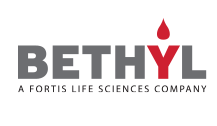Rabbit anti-ARVCF Antibody

Catalog #
ARVCF
Human
WB
Rabbit
Polyclonal
Whole IgG
between 75 and 125
IgG
Unconjugated
Antigen Affinity Purified
Product Details
Human
Mouse
Human
2 - 8 °C
1 year from date of receipt
Armadillo repeat gene deleted in velocardiofacial syndrome (ARVCF) is a member of the catenin family. This family plays an important role in the formation of adherens junction complexes, which are thought to facilitate communication between the inside and outside environments of a cell. The ARVCF gene was isolated in the search for the genetic defect responsible for the autosomal dominant Velo-Cardio-Facial syndrome (VCFS), a relatively common human disorder with phenotypic features including cleft palate, conotruncal heart defects and facial dysmorphology. The ARVCF gene encodes a protein containing two motifs, a coiled coil domain in the N-terminus and a 10 armadillo repeat sequence in the midregion. Since these sequences can facilitate protein-protein interactions ARVCF is thought to function in a protein complex. In addition, ARVCF contains a predicted nuclear-targeting sequence suggesting that it may have a function as a nuclear protein [taken from NCBI Entrez Gene (Gene ID: 421)].
Armadillo repeat protein deleted in velo-cardio-facial syndrome
Alternate Names
armadillo repeat gene deleted in velocardiofacial syndrome; armadillo repeat protein deleted in velo-cardio-facial syndrome
Applications

